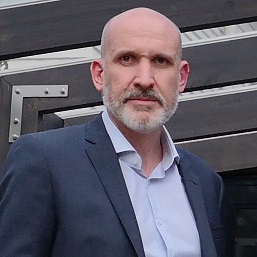Jun 15, 2023
DINZ will work with sector partners, Māori and government on equitable reductions to agricultural greenhouse emissions, writes Deer Industry NZ chief executive Innes Moffat.
Agriculture sector leaders today met with Prime Minister Chris Hipkins and senior government ministers to discuss the state of the agriculture industry, including progress on reducing New Zealand’s greenhouse gas (GHG) emissions.
The sector group leaders agreed on working together to find the means of measuring emissions at the farm level and incentivising uptake of emissions reductions activities.

DINZ chief executive Innes Moffat.
New Zealand has an obligation to reduce greenhouse gas emissions. New Zealanders expect farmers to do their bit, our customers are increasingly asking for lower carbon products, but we need to be incentivising the uptake of mitigations.
Currently, it is written into legislation that agricultural emissions will be priced from 1 January 2025.
DINZ position is, as it always has been, that agriculture must be kept out of the Emissions Trading Scheme and that New Zealand agribusinesses should monitor and take steps to reduce greenhouse gas emissions.
Nitrous oxide and methane are warming gases emitted by farming businesses. These need to be managed and steps taken to reduce their impact on the climate, but, not at the expense of the viability of farming families across New Zealand.
Deer farmers are already committed to managing and improving their resource use through having farm environment plans and most know their GHG numbers. Deer farmers are, through their levies, investing in science to find real tools to reduce methane in extensive pastoral systems. While methane inhibitors show promise in the lab, they remain some years away from commercial application, and cost-effective delivery mechanisms need to be developed.
Sector partners remain committed to working with government to find the best and fairest means of achieving reductions in greenhouse gases.

Innes Moffat

